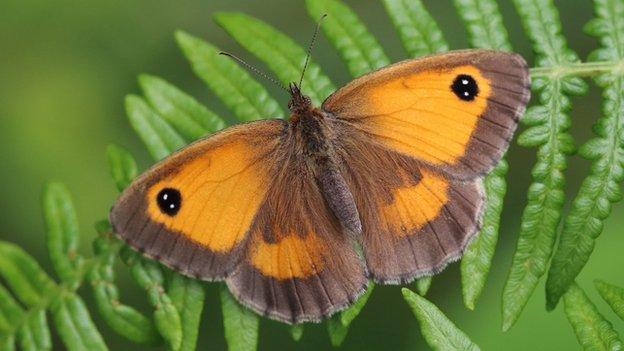Butterfly numbers drop a mystery, say experts
- Published
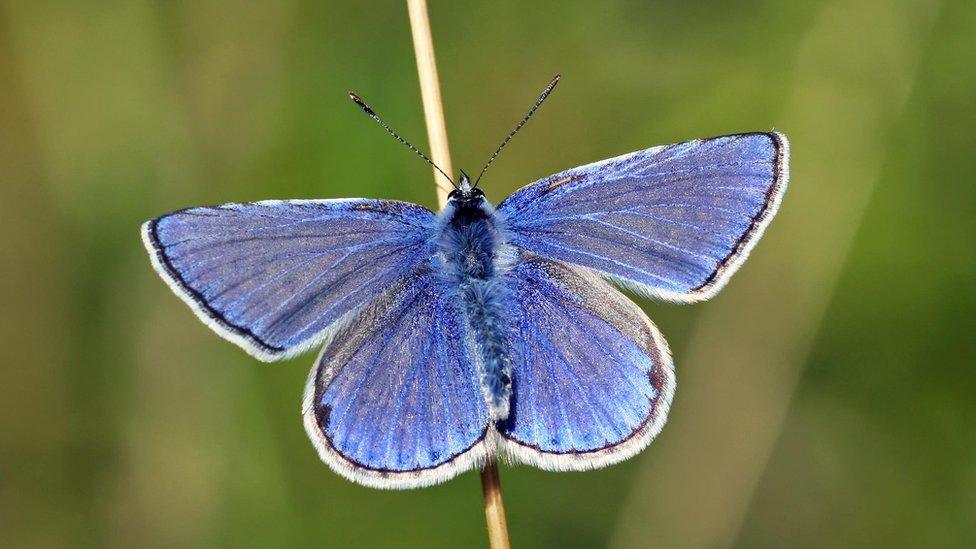
Common blue butterflies were the worst affected, with a drop of more than half
A huge drop in the number of butterflies in the UK is causing confusion among wildlife experts.
The Big Butterfly Count, external - an annual survey by thousands of volunteers - recorded an average 12.2 per count, compared with a 2013 high of 23.
Numbers were even lower than a previous slump in the wet summer of 2012, despite far warmer weather.
Butterfly Conservation, which organised the count, said the cause was still a mystery.
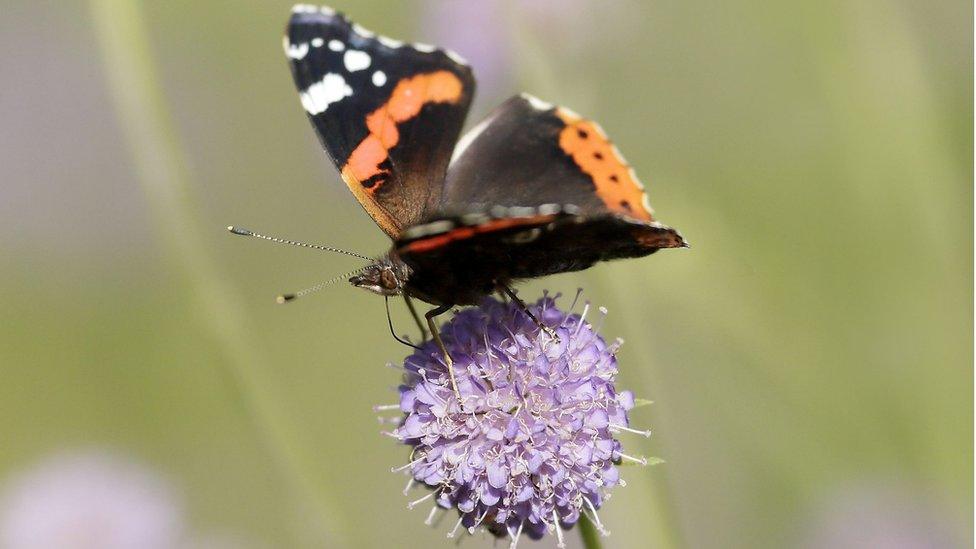
Red admirals bucked the trend and showed a huge jump in recorded numbers
The count involved more than 36,000 people who recorded more than 390,000 butterflies.
The survey has been running since 2010 but the group uses nationwide figures which go back to the 1970s.
Butterfly Conservation's head of recording Richard Fox said: "The overall trend has been a decline but we expect annual variations based on the weather.
"But the fall this year has been shocking and disappointing as the summer weather has been good, and we don't know why.
"The most extreme thing was the exceptionally mild winter but it is debated if that is a good or bad thing for butterflies."
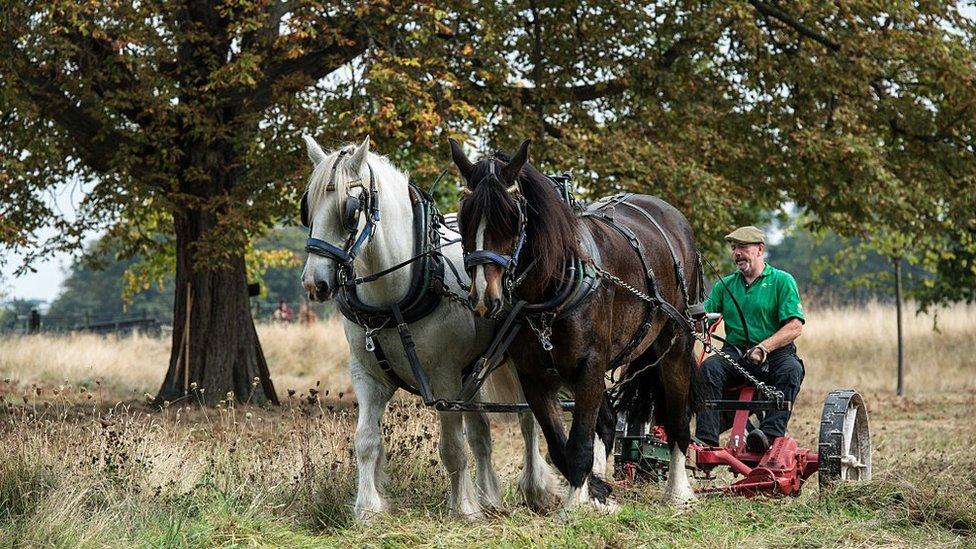
Butterfly populations are under long-term pressure as farming methods change
The picture is not even across all species however, with some doing well and others being hit hard.
Red admiral was up by 70% and the green-veined white by 58%.
The worst hit species was the common blue, down by 55%, with five other types dropping by 40% or more.
Mr Fox added: "Butterfly numbers are under pressure from industrialised farming and the concern is that a bad year will do lasting damage.
"With some rarer species we are already at the point that colonies could be wiped out and not having the numbers to come back."
Tim Sexton, from Attenborough Nature Reserve in Nottinghamshire, said his experience reflected this picture.
"Some populations have dropped dangerously low and we might even risk local extinctions.
"The thing we have noticed is that it seems like the species which migrate, like the red admiral, have done well but those which wintered here have suffered."
- Published6 October 2016
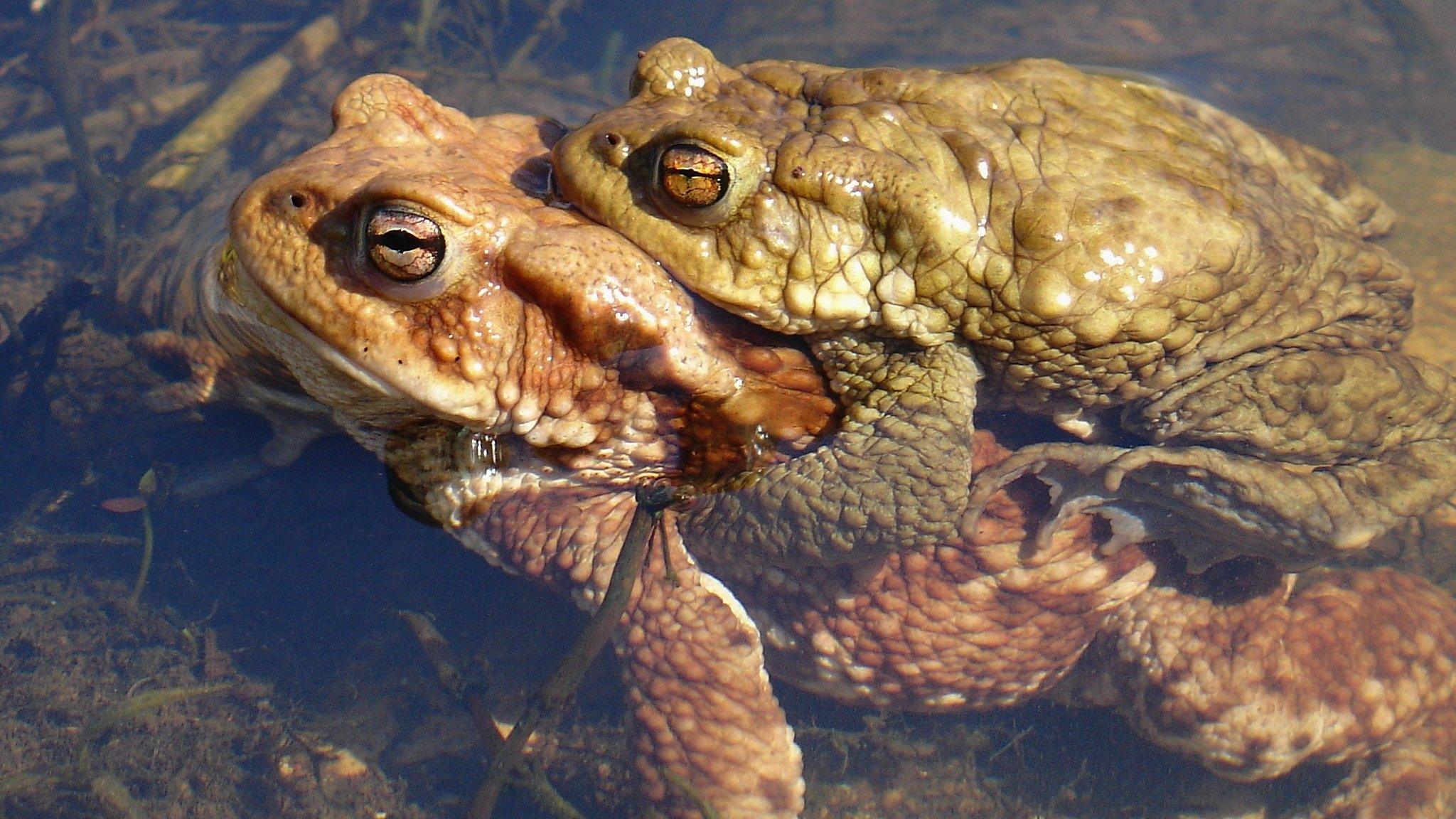
- Published14 September 2016
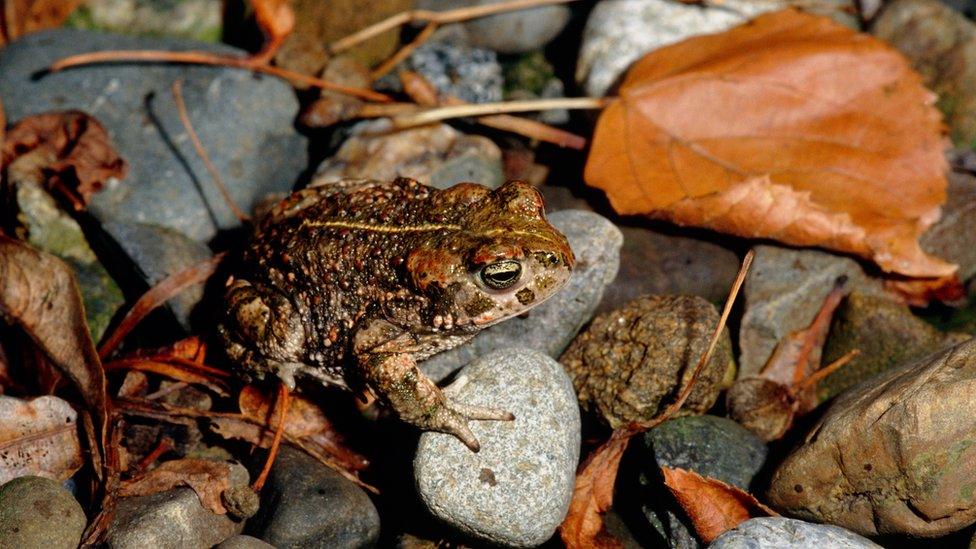
- Published15 December 2015
